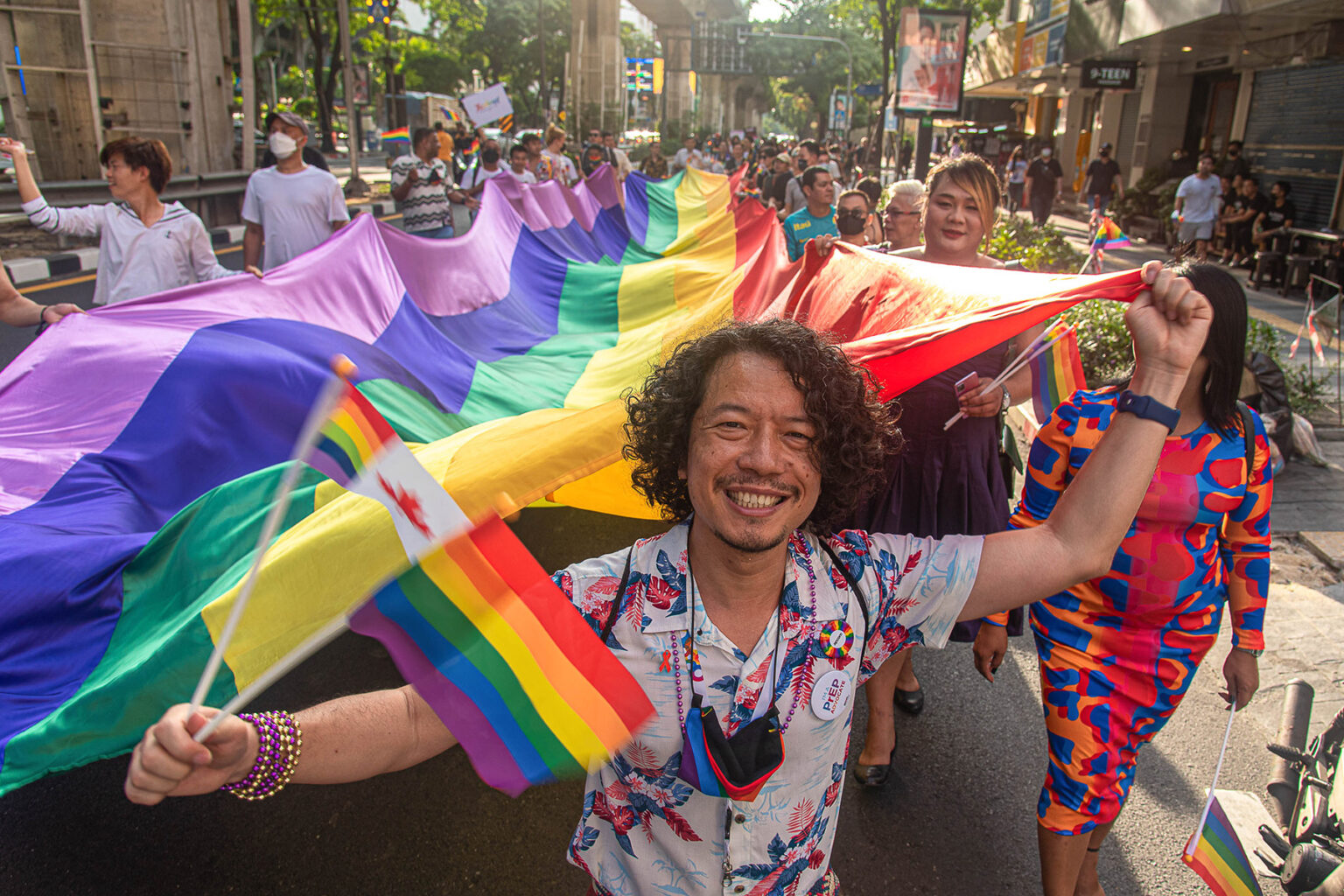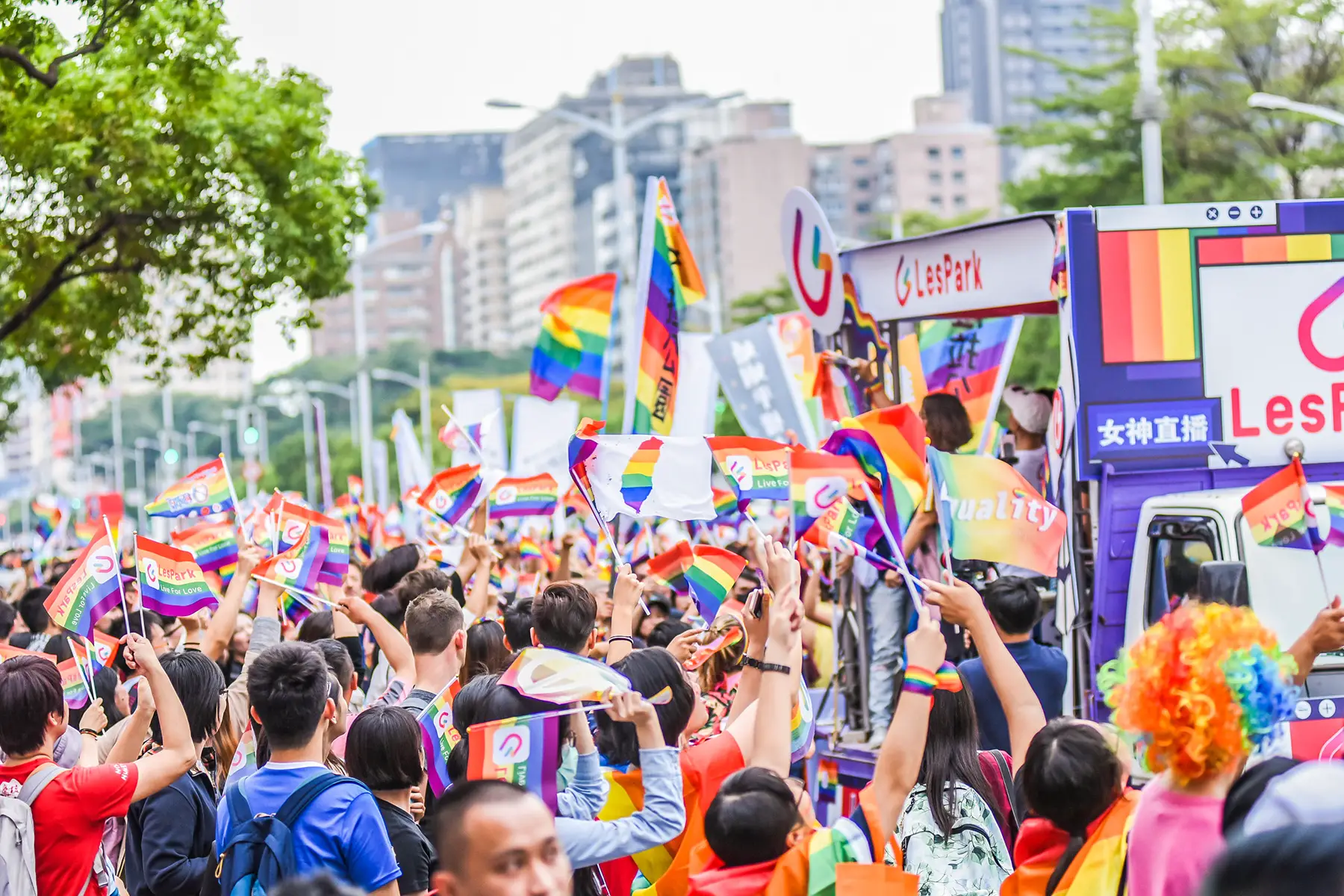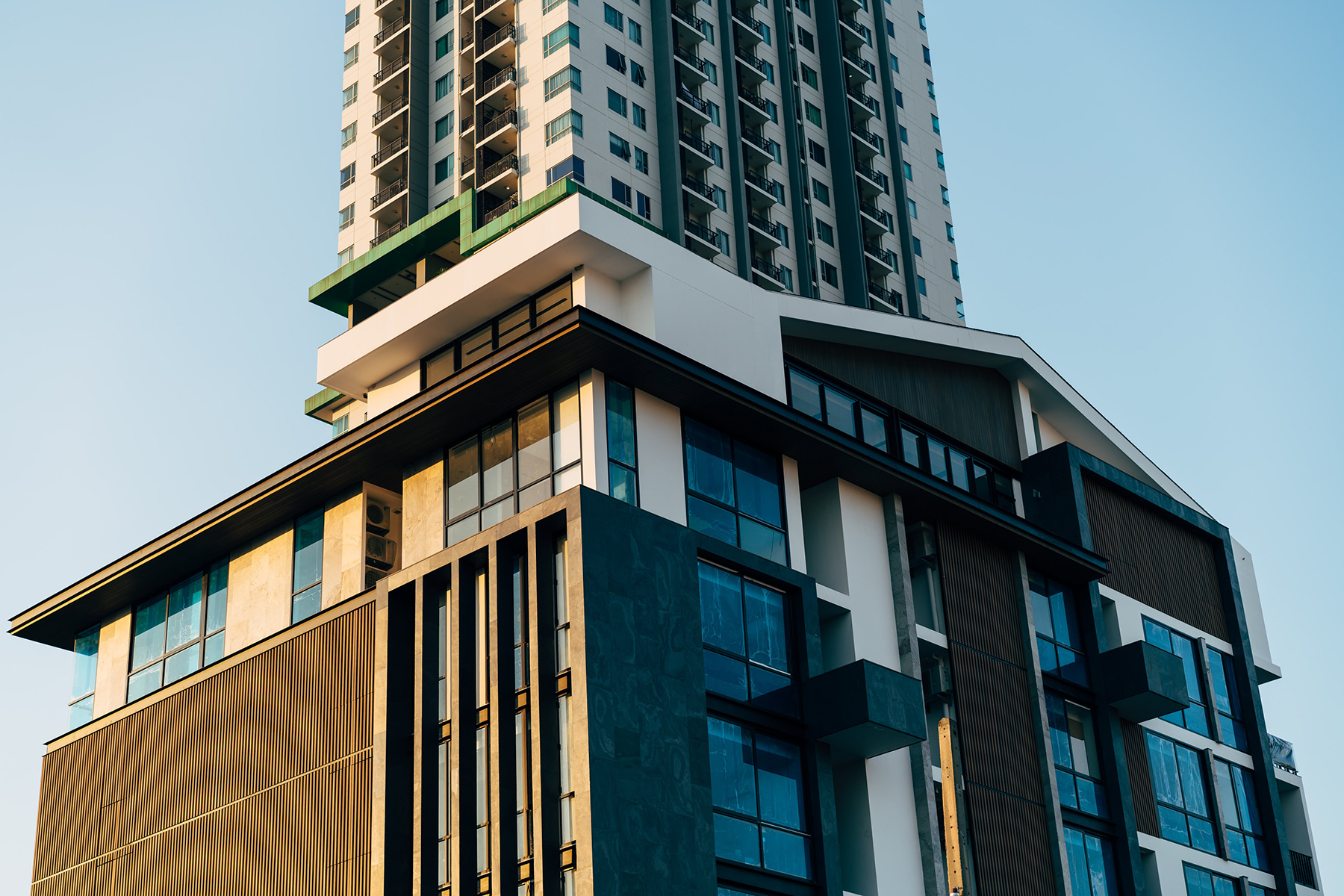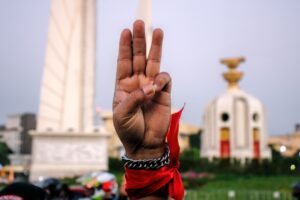Thailand is known as one of Asia’s most friendly places for lesbian, gay, bisexual, transgender, and queer people (LGBTQ – เลสเบี้ยนเกย์ไบเซ็กชวลคนข้ามเพศและเควียร์).
The country performs better than many of its neighboring countries when it comes to social acceptance. The LGBT+ community is also relatively well off in the context of Thailand’s rather poor overall human rights record. However, there are still many battles to be won before the Thai queer community achieves anything resembling equality.
Take a deep dive into Thailand’s LGBTQ+ rights as they stand at the moment, with sections on:
- LGBT+ rights in Thailand
- LGBT+ family and parenting rights in Thailand
- Discrimination against the LBGT+ community in Thailand
- Violence and hate crimes against LGBT+ in Thailand
- Public attitude toward the LGBT+ community
- What is society’s view on gender identity?
- What’s the LGBT+ scene like in Thailand?
- LGBT+ representation in arts, media, and sports
- Where can you access support for LGBT+?
- Useful resources
Ground News
Get every side of the story with Ground News, the biggest source for breaking news around the world. This news aggregator lets you compare reporting on the same stories. Use data-driven media bias ratings to uncover political leanings and get the full picture. Stay informed on stories that matter with Ground News.
LGBT+ rights in Thailand
Thailand is a mixed bag when it comes to LGBT+ rights (สิทธิของ LGBT+). The country decriminalized homosexuality back in 1956, and there are labor acts to protect LGBT+ members from discrimination in the workplace. In September 2024, the king officially signed the same-sex marriage bill into law, making Thailand the first country in Southeast Asia to legalize and recognize gay marriage.
That said, the Thai health authorities stopped classifying LGBT+ as a mental illness as late as 2021, and there is currently more legislation needed to grant the queer community equal rights.
For example:
- The 2017 Constitution does not mention sexual orientation and gender identity
- Third or non-binary genders are not recognized
- Although transgender people can affirm their gender without needing surgery, it will not be legally recognized on official forms of ID
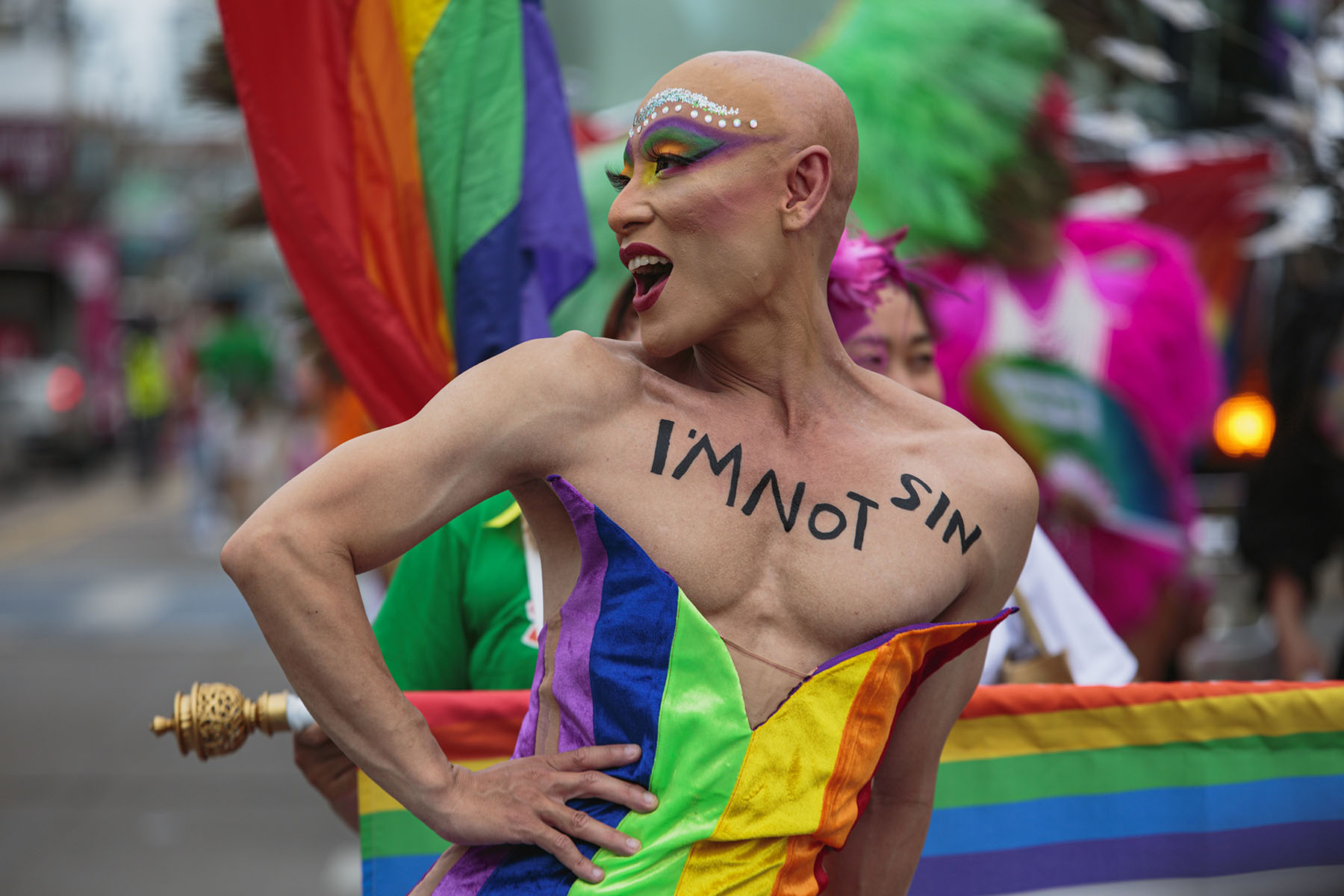
Despite this, Thailand has a reputation as being one of Asia’s most LGBT-friendly countries. Most large cities have an open, vibrant, and visible LGBT+ scene. Bangkok (กรุงเทพฯ) is also mentioned in 14th place on Out Traveler’s list of 15 gayest cities in the world in 2023 (the second-highest in Asia after Tel Aviv, Israel).
In terms of global rankings, the country currently sits in the upper-mid echelon. The consensus is that it has made a lot of progress, but there is still some way to go. Rankings include:
- Placed 25th out of 197 countries on the LGBT Equality Index (2025), which measures LGBT+ rights, laws, and freedoms, as well as public attitudes toward the queer community
- In 54th place out of 202 countries on the 2024 Spartacus Gay Travel Index, which measures the legal situation and living conditions of LGBT+ members
According to a 2023 Ipsos study, 8% of the Thai population identifies as LGBT+. This is slightly below the global average (9%). Around 5% identify as transgender, non-binary, non-conforming, or gender-fluid (คนข้ามเพศ ไม่ใช่ไบนารี่ ไม่เป็นไปตามข้อกำหนด หรือมีความลื่นไหลทางเพศ), which is higher than the global average of 3%.
LGBT+ family and parenting rights in Thailand
Is same-sex marriage legal in Thailand?
Yes, same-sex marriage has been legal in Thailand since September 2024. It is the first country in Southeast Asia to legalize gay marriage.
According to a 2023 poll, around 73% of the population supports same-sex marriage.
Can LGBT+ couples adopt children?
Since the signing of the same-sex marriage bill, LGBT+ couples can now adopt children in Thailand.
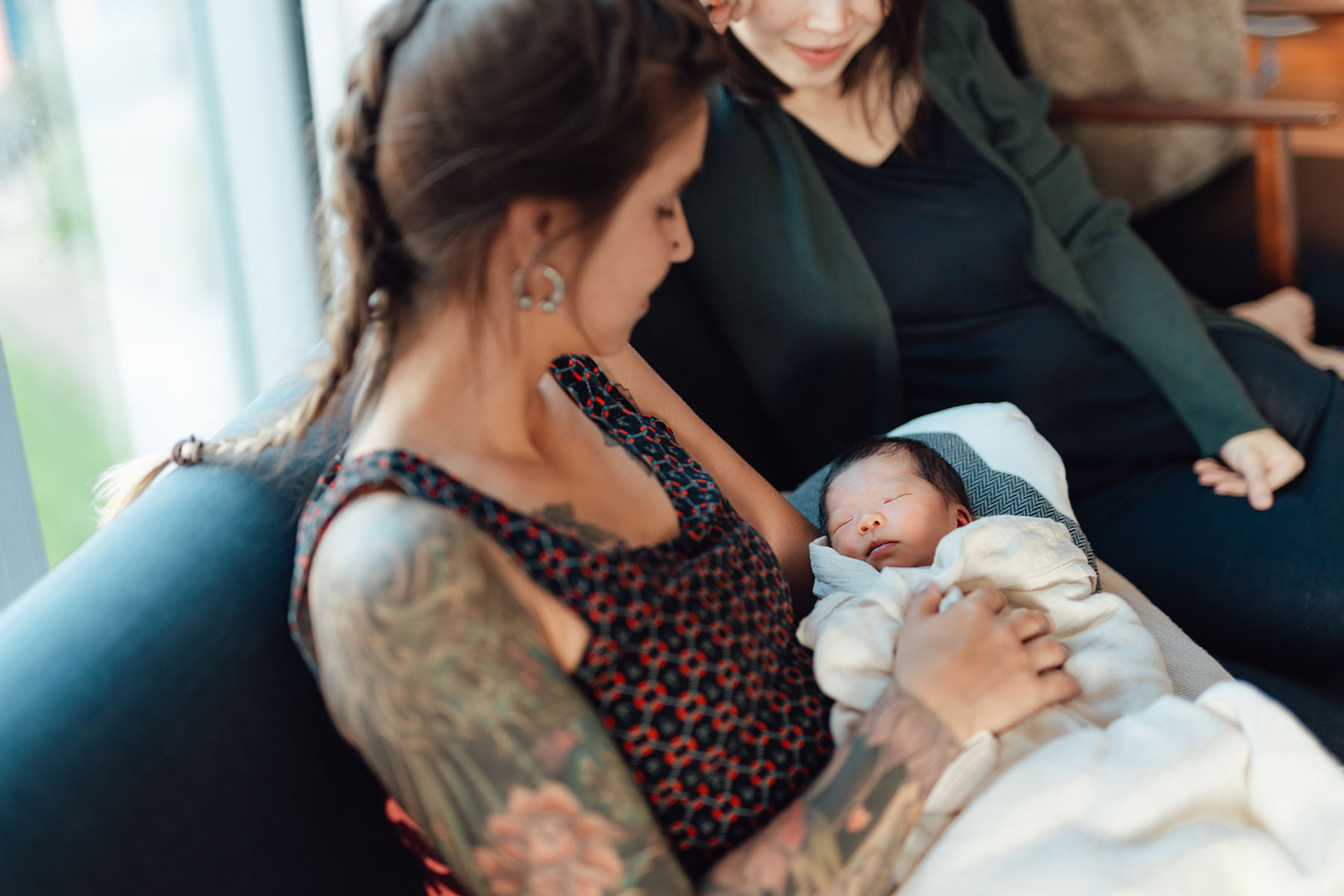
Can LGBT+ couples access fertility treatment?
Similar to adoption, fertility treatment (การรักษาภาวะเจริญพันธุ์) in Thailand is only available to married couples. This includes in-vitro fertilization treatment (IVF – การรักษาด้วยการปฏิสนธินอกร่างกาย) and surrogacy (การตั้งครรภ์แทน).
Because of this, many Thai LGBT+ couples travel abroad for fertility treatment. Now that the same-sex marriage bill has passed, however, more LGBT+ parents will be able to access both IVF and non-commercial surrogacy on the same basis as heterosexual couples.
As a side note, commercial surrogacy is prohibited by the 2015 Protection for Children Born Through Assisted Reproductive Technologies Act. However, there is evidence that it continues to take place in the country.
Discrimination against the LBGT+ community in Thailand
Like most countries, Thailand has signed the UN mandate protecting LGBT+ and other sexual minorities from violence and discrimination (การแบ่งแยก) based on sexual orientation and gender identity. There are also labor laws that ban discrimination on grounds of gender identity.
However, legislative gaps remain, and there are many reports of continuing discrimination against the LGBT+ community.
LGBT+ discrimination in the workplace
In theory, the 2015 Gender Equality Act and the 2008 Labor Protection Act protect LGBT+ employees from discrimination at work. In practice, however, this hasn’t stopped discrimination from happening.

According to a 2018 World Bank Report, many LGBTQ+ people will experience some form of workplace discrimination during their careers, including:
- 59% are rejected from a job application on account of their sexuality, rising to 77% of transgender people
- Almost 40% experience workplace harassment or ridicule
- Just under 21% are denied a promotion due to being LGBT+
LGBT+ migrant workers are also frequent targets of discrimination. A 2022 report by the International Labor Organization (ILO) revealed that many avoid sharing their sexual orientation or gender identity for reasons of safety and job security.
In addition, around 32% of respondents conceal their sexual orientation, gender identity, and expression some or all the time. This could be, for example, by dressing as per the sex assigned at birth during their transition.
LGBT+ discrimination in housing
Thailand’s right to affordable housing is based on household income, with no specific discriminatory legislation toward LGBT+ tenants.
However, many same-sex couples have reported discrimination when it comes to buying property and taking out a mortgage (จำนอง). As gay marriage has only been legal in Thailand since September 2024, lenders have often refused to offer joint mortgages, and it normally comes down to a matter of discretion.
According to the World Bank (2018), over 37% of LGBT+ couples were told that they could not take out a mortgage together. This was nearly double (almost 74%) for lesbian couples. Additionally, around 15% of LGBT+ couples experienced ridicule from service providers because of their sexuality.
In 2022, Thailand’s state-run Government Housing Bank (GHB – ธนาคารอาคารสงเคราะห์) took the major step of launching a housing loan for LGBT+ couples, under which they would be charged a minimum interest. Borrowers could apply for the loan from July to December 2022.
LGBT+ discrimination in education
A 2016 Unicef Study into sex education (เพศศึกษา) in Thai schools found that, although LGBT+ topics are included in most institutions, they are often insufficiently covered. Many teachers lacked the skills and knowledge of LGBT+ issues or covered them in a negative way.
One reason for this is that the teaching manual for topics under the 2008 Basic Education Core Curriculum categorized sexual and gender diversity as “sexual deviation”.
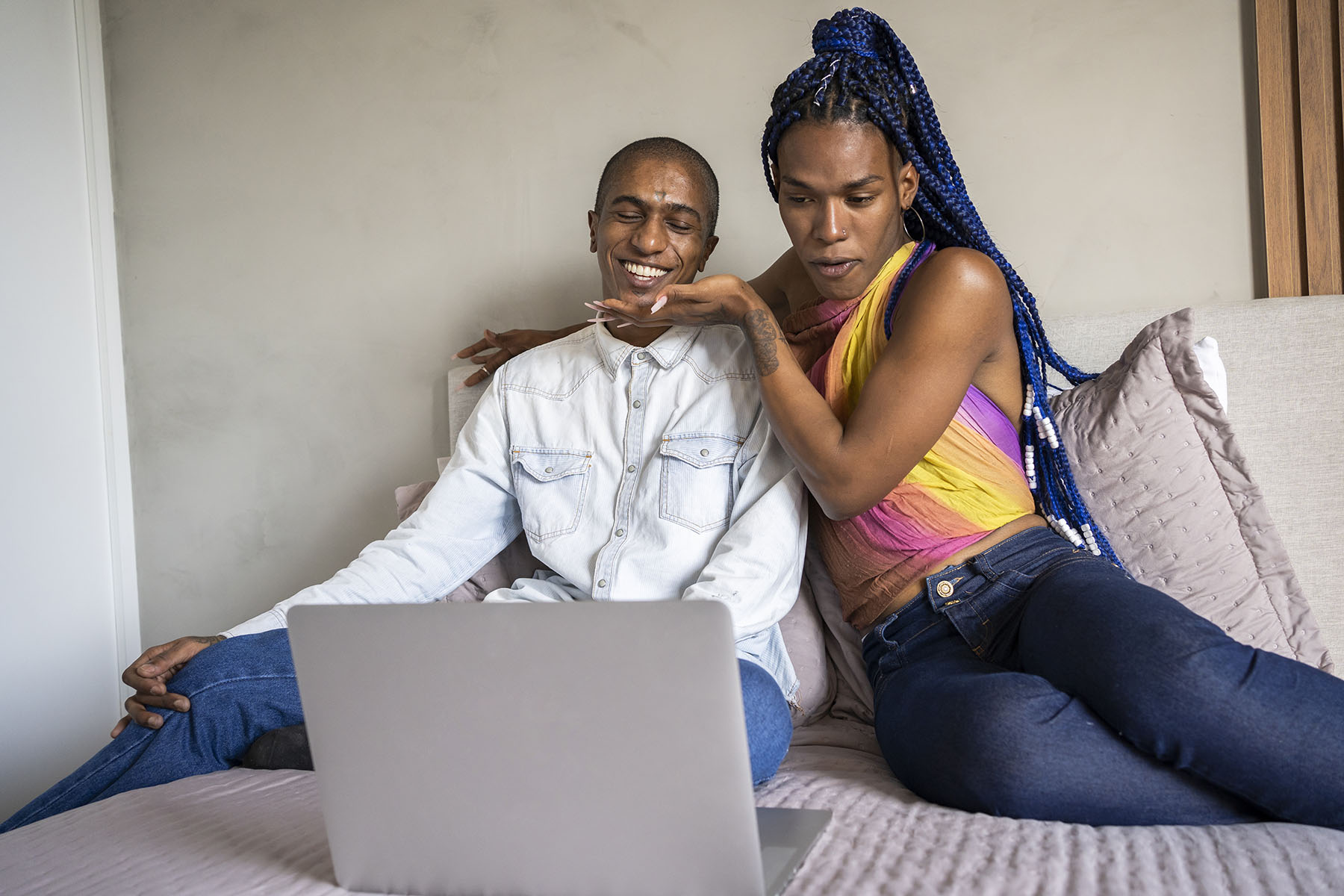
There is currently no national legislation against LGBTQ+ discrimination in schools. This, of course, leaves a mark on school life. For example, a 2020 study revealed that 36% of high-school students who self-identified as LGBT+ experienced psychosocial violence. This includes being gossiped about, being excluded from a group or activity, and being belittled, humiliated, denigrated, and threatened.
The 2018 World Bank report also found evidence of LGBT+ discrimination in higher education, such as:
- Over 31% of lesbians, 26% of gay men, and 21% of transgender individuals report not being given the same education and training opportunities as cis-gender heterosexual students
- Almost 22% of lesbians, 18% of gay men, and 18% of transgender people felt unable to complete their degrees due to experiencing discrimination
LGBT+ discrimination in healthcare
Although there are no barriers to accessing public healthcare (การดูแลสุขภาพของประชาชน) and health insurance (ประกันสุขภาพ), instances of LGBT+ discrimination still remain. For instance, transgender patients often have difficulty taking out private health insurance, and around 37% of LGBT+ couples found they couldn’t get their partner covered on their insurance policy.
LGBT+ patients are also more likely to experience discrimination at the hands of individual medical professionals:
- Over 25% say they’ve been treated disrespectfully
- 25% report harassment or ridicule
- Almost 24% have been asked to leave because of their sexuality or gender identity
A separate UN report from 2020 has highlighted specific stigma and discrimination experienced by the transgender community.
In terms of LGBT+ healthcare needs being met, things are – perhaps unsurprisingly – better in big city areas. Many facilities offer sexual healthcare, HIV testing, and LGBT-friendly counseling. In 2021, the Bumrungrad Hospital in Bangkok opened up a tailored LGBT+ holistic healthcare clinic.
As of 2023, you can access gender-affirming surgery (การผ่าตัดยืนยันเพศ) with two medical references and after 12 months of hormonal therapy (การบำบัดด้วยฮอร์โมน). Those aged 18–20 also need a parent or guardian’s consent. The costs are paid out-of-pocket.
However, this again could change soon. Thailand plans to become the first country in Southeast Asia to cover LGBT+ treatments (e.g., hormone therapy and gender reassignment surgery) in the next few years.
Gay men are still banned from giving blood. There are no laws in place prohibiting conversion therapy (การบำบัดด้วยการเปลี่ยนใจเลื่อมใส).
According to a 2019 UN report, nearly half of Thai LGBT+ members have contemplated suicide at some point in their lives. If you or someone you know needs help, you can reach out to:
- The Samaritans of Thailand at 02-113-6789 (open from 06:00 to 16:00)
- Helpline 1323 at 1323 (open 24/7)
- Social Help Center Hotline 1300 P.M. at 1300 (open 24/7)
LGBT+ discrimination in the military
Members of the LGBT+ community have been allowed to serve in the military since 2005. Military service in Thailand is compulsory for up to two years for citizens aged 21. Those with a medicalized gender identity disorder are exempt from service, but other transgender citizens have to serve in a unit with soldiers who share their assigned birth gender.
A 2020 Amnesty International investigation found evidence of “rampant harassment, beatings, and sexual abuse.” They reported that gay conscripts and those perceived as gay were routinely singled out.
Violence and hate crimes against LGBT+ in Thailand
Although the LGBT+ community does experience some violent attacks in Thailand, violence and hate crimes are not widespread. The country is – largely – a safe space for sexual minorities.
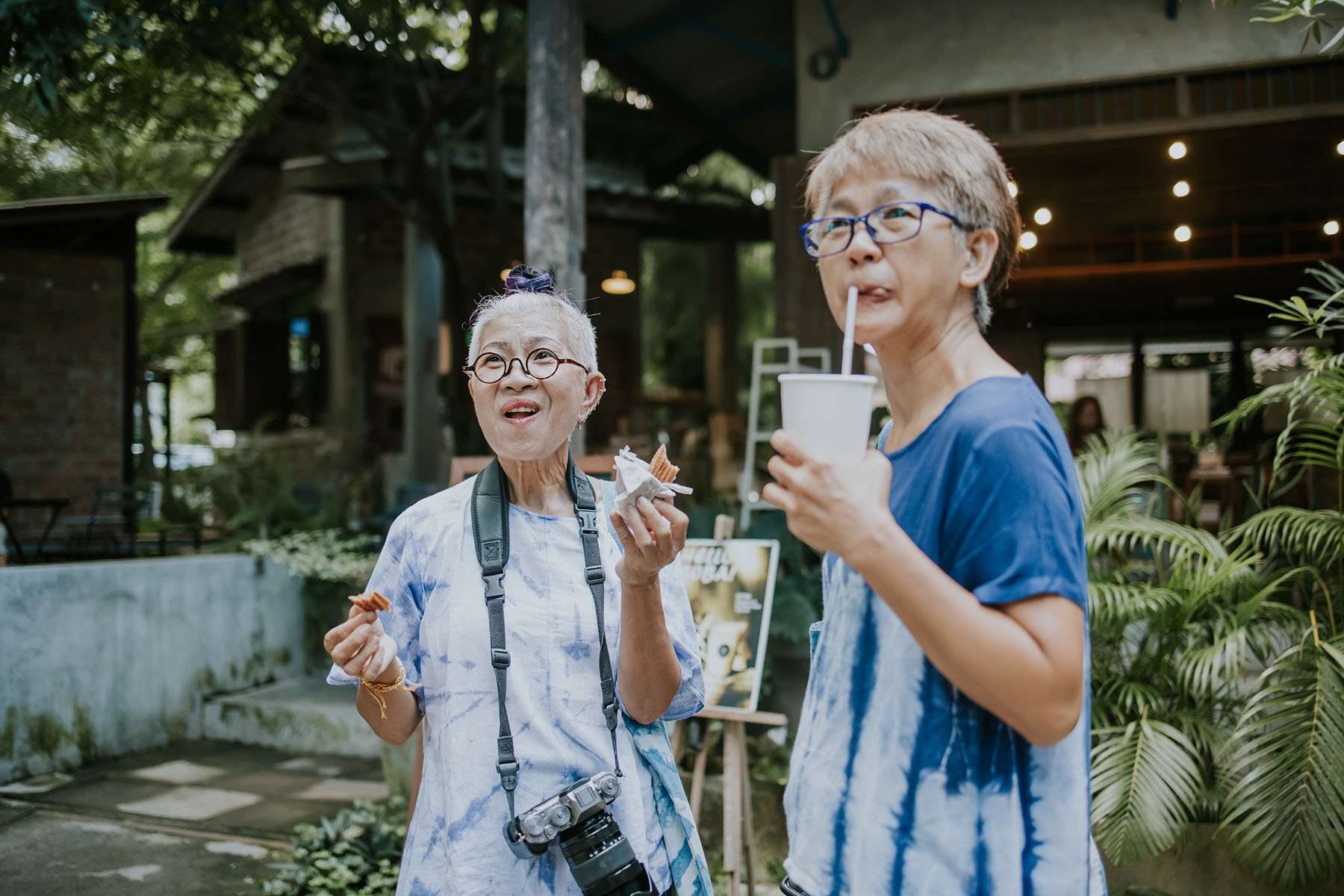
The latest statistics are from 2014, and there haven’t been any updates since. This reports that physical and sexual attacks were more common in schools and the military. Similarly, a 2014 study by the UN found that 56% of LGBT+ respondents experienced bullying within the past month. The most common forms were:
- Social abuse (36%)
- Physical abuse (31%)
- Verbal abuse (29%)
- Sexual harassment (24%)
Although Thailand’s penal code outlaws violent physical attacks on individuals, there are no specific laws covering violence or hate crimes toward LGBT+ people. In 2021, it was reported that domestic violence against women and minority groups was on the rise due to the COVID-19 pandemic.
Public attitude toward the LGBT+ community
Although there is evidence of stigma and discrimination, Thailand is generally quite accepting of the LGBT+ community. A 2023 poll by the National Institute of Development Administration (Nida – สถาบันบัณฑิตพัฒนบริหารศาสตร์) proved that social tolerance is improving, with nine in 10 Thais accepting LGBTQ+ people as friends, colleagues, and family members.
Other conclusions from this poll include:
- 92.8% of the population would accept their friends or work colleagues being LGBTQ+
- 90.6% would accept family members who are LGBTQ+
- 79.6% of Thais support same-sex marriage
- 77.6% think official documents should have an extra box for LGBTQ+ people
- 63.6% believe transgender persons should be able to change their gender titles
Findings from the 2023 IPSOS Attitude Survey differ slightly:
- 73% of Thais support same-sex marriage or legal recognition
- 77% of the population supports same-sex adoption
- 85% support discrimination protection for transgender individuals
- 70% think official documents should have an extra box for non-binary people
What is society’s view on gender identity?
Thailand is known internationally for embracing transgender culture. The country’s sizable trans community (just under 315,000 people) is less marginalized than it is in other parts of Southeast Asia. You can also find non-binary genders, such as kathoeys (กะเทย) and toms (ทอม), in mainstream spaces and cities such as Bangkok.
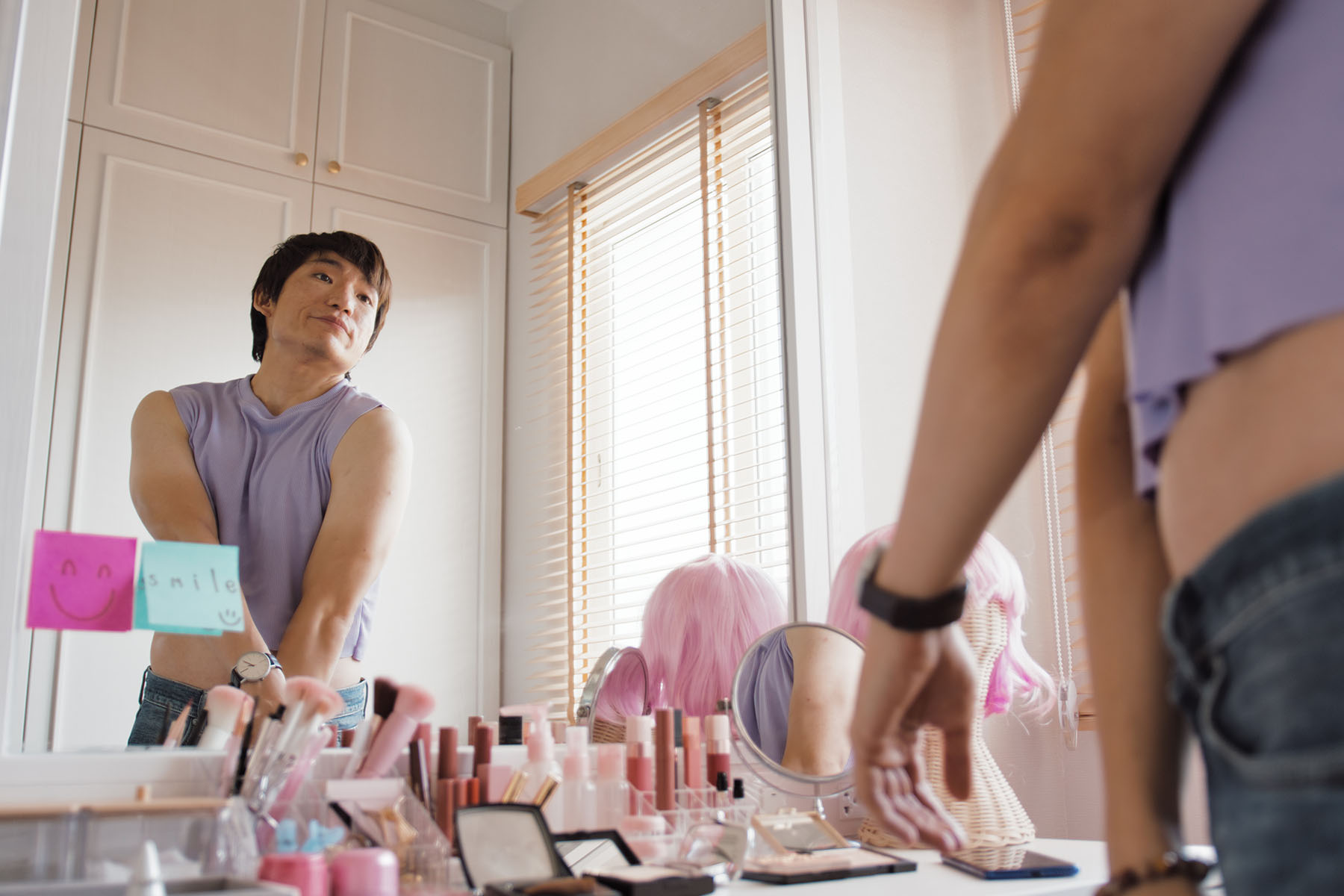
Despite this perceived social acceptance, however, transgender persons in Thailand experience severe legal disadvantages. For example, they cannot change their gender on any form of official ID and are often forced to conform to their assigned birth gender (rather than their identified gender), even after reassignment surgery. Examples of this include:
- Being forced to observe gender-based dress codes for certain jobs or social situations
- Official documentation (such as university degrees) not including their identified gender identity
- Being forced into unsuitable public spaces (e.g., gender-specific hospital wards)
- Having to serve in a military unit that shares their assigned birth gender
In addition, the country doesn’t legally recognize non-binary gender terms, meaning everyone must be categorized as either male or female on official forms.
This denial of legal recognition has led to much discrimination, as documented in a 2021 Human Rights Watch (HRW) report.
Gender-neutral pronouns
Second- and third-person pronouns in Thailand are usually gender-neutral. For example, there are two common words for ‘you’ in Thai:
- khun (คุณ)
- ter (เธอ)
Both are gender-neutral, though the latter is more often used to address someone of the opposite gender. Even simpler, there is one common word that covers he, she, and they. This word, kao (เค้า), can be used in most social situations.
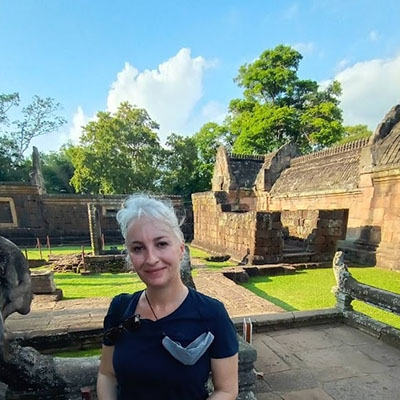
Local expert
Jane Evans
Insider tip
Using kao can be tricky because (depending on the tone) it could also mean rice, mountain, news, fishy, knee, enter, or white!
First-person language in Thailand is more gendered, allowing the speaker to make the decision on whether they use the masculine or feminine form for ‘I’. These are:
- pom (ผม) or rao (เรา: also used for “we/us” for all sexes) for men
- chan (ฉัน) or dichan (ดิฉัน: rarely used nowadays) for women
In informal situations, speakers will often drop the pronouns altogether so they don’t have to choose between masculine or feminine pronouns. Online language teacher Byu gives a good overview of gay language and slang in Thailand (Thai Gay Lingo, ศัพท์แสงเกย์ไทย).
What’s the LGBT+ scene like in Thailand?
Thailand has had a vibrant LGBT+ scene (สถานที่ LGBT) for decades, one that has – at times – snuck under the radar of the authorities. Its major cities have drawn people from all over the globe to enjoy its bars, nightclubs, and beaches. The LGBT+ community even has had its own lifestyle magazine, Mithuna (aimed at a male readership), as early as 1984.
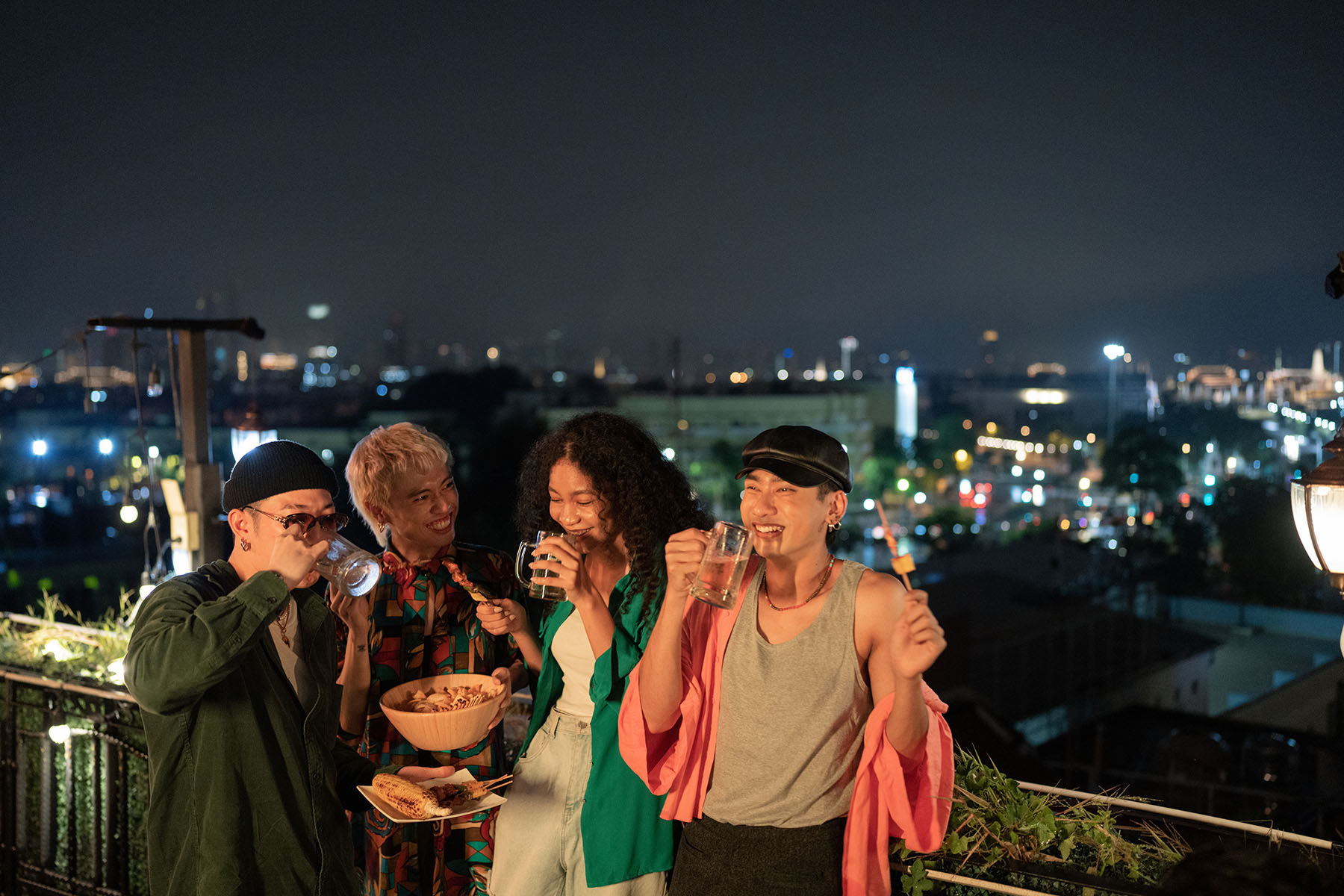
Thailand has many popular city destinations for the international LGBT+ community, including:
- Bangkok: The capital and most well-known LGBT-friendly city, hosting an annual Pride parade (การเดินขบวน), a White Party New Year’s Eve bash, and the Songkran G Circuit Party
- Phuket (ภูเก็ต): Has a thriving LGBT+ nightlife with many bars and nightclubs
- Pattaya (พัทยา): Popular with the LGBT+ crowd for its beaches (such as Dongtan and Jomtien) and host to the annual transgender Miss International Queen beauty contest
- Chiang Mai (เชียงใหม่): Another LGBT-friendly Thai city with numerous facilities and an events calendar
All of these cities have annual Pride celebrations (ความภาคภูมิใจของชุมชนเพศหลากหลาย).
You can check out resources such as Thai LGBT Connect and TravelGay for information on LGBT events and LGBT-friendly services and activities across Thailand.
LGBT+ representation in arts, media, and sports
Thailand’s media and cultural industries have had LGBT+ inclusion for many years, with gay and transgender characters frequently appearing in movies and on TV. This hasn’t always been in a positive light, however. The country has had its own culture of camp male and butch female clichés. A 2015 UNDP report found that the Thai mainstream media perpetuated negative stereotypes of LGBT+ groups.
In more recent times, there has been an increase in positive visibility in the arts. When the movie The Last Song came out in 1985, it was seen as groundbreaking for putting a trans woman in the lead role.
Today, Thailand has a growing LGBT+ movie industry, as evident in Bangkok’s annual Pride Film Festival. There has also been a wave of exciting LGBT+ music and art events, although these have been more underground than mainstream.
One genre that has capitalized on liberalizing attitudes towards the LGBT+ community has been Boy Love dramas. These series deal with various LGBT+ themes and have been successful in mainstreaming same-sex lifestyles (not just in Thailand but also overseas). On the other hand, they’ve also received criticism for lacking depth.
High-profile LGBT+ individuals in Thailand include:
- Actor “Fluke” Natouch Siripongthon
- Actor Mew Suppasit
- Actor and model Poyd Treechada
- Businesswoman and TV host Chakrapong “Anne” Chakrajutathib
- Comedian DJ Nui
- Pangina Heals, host of Drag Race Thailand and founder of House of Heals
- Pauline Ngarmpring, Thailand’s first transgender politician
- Tennis player Luksika Kumkhum
- TV host Vuthithorn “Woody” Milintachinda
- TV personality Jennie Panhan
Where can you access support for LGBT+?
Despite a government clampdown on non-profit organizations campaigning for human rights in Thailand, you can still get support, advice, and information from the following groups:
- Love Foundation – works towards LGBT+ equality and sexual health awareness
- Pride Thailand – supports the LGBT+ community and helps organize annual Pride celebrations
- Rainbow Sky Association of Thailand – works to promote LGBT+ rights and healthcare in Thailand (website in Thai)
- The Foundation of Transgender Alliance for Human Rights (Thai TGA) – supports the transgender community in Thailand
- Youth Voices Count (YVC) – advocates for LGBT+ youth across the Asia-Pacific region
Useful resources
- LGBT+ Equality Index – measures equality for LGBT+ in countries worldwide
- Economic Inclusion of LGBTI Groups in Thailand (2018) – World Bank report
- Tolerance But Not Inclusion (2019) – UNDP report on the LGBT+ community in Thailand
- Stories of Stigma (2020) – UN report into experiences of the trans community in Thailand
- National Human Rights Commission (NHRC) – independent human rights body in Thailand where you can report rights violations
- Language drops – learn how to say LGBT related vocab in Thai (including ‘I am proud’ (ฉันภูมิใจ))
